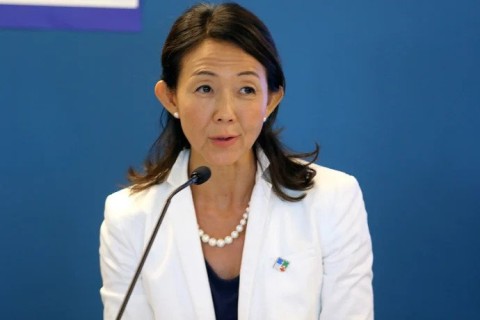Faith leaders join call of peace treaty to end Korean War

Christine Ahn, executive director of Women Cross DMZ, speaks at a Korean peace conference in Washington, DC, on July 27. (Photo by Thomas E. Kim, United Methodist News)
On July 27, the 70th anniversary of the Armistice Agreement of the Korean War, known as the “Forgotten War,” hundreds of Korean peace advocates from across the country and South Korea gathered in Washington, DC, for Korea Peace Action.
It was part of a three-day convening called National Mobilization to End the Korean War, which was held July 26-28 and organized by a broad coalition of peace advocates and various faith traditions.
One of the primary goals of the convening is to mobilize support for the Peace on the Korean Peninsula Act (H.R. 1369), which calls for a peace agreement with North Korea. Christians worldwide have called for an end-of-war agreement and a peace treaty.





